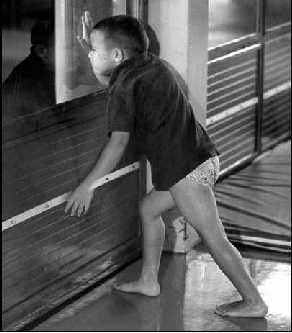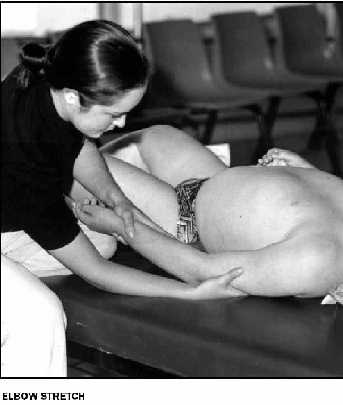What are the care and management options available to my child for Duchenne Muscular Dystrophy (DMD)?
The care and management of DMD encompasses a multi disciplinary health team approach. This team can involve the family doctor, paediatricians, orthopaedic surgeons, cardiologists and Allied Health staff such as physiotherapists, occupational therapists and social workers.
Although there is no cure for DMD, there are excellent care options that will enable your child to enjoy as normal life as possible.
After diagnosis, your child will be given a two fold management plan involving specialist doctors and allied health staff. Although separated below for clarity, these two fields will work in unison to enhance your child’s quality of life, to lessen the rate of the diseases progression and to reduce the impact of any secondary problems that may arise.
Medical Team (Paediatrics, G.P.’s, Cardiologists, Orthopaedics)
DMD progresses through stages and therefore these treatments may vary depending on the stage of the disease.
· Steroid therapy – the use of corticosteroids has been shown to be beneficial in retaining muscle force and function for longer periods. Since DMD affects all muscles of the body, use of steroids can assist in ambulation (moving around) and cardiac and respiratory problems. There is however some side effects and you should discuss this with your doctor.
· Orthopaedic interventions – the use of surgery will depend on what stage and the severity of symptoms your child may be experiencing. Surgery is usually only used as a last resort to improve muscle function or to maintain respiratory and cardiac function. These operations involve lengthening the tendons of muscles or inserting rods onto the spine to keep it straight.
· Respiratory monitoring – your child’s breathing performance will be monitored by the medical team and allied health team. They may prescribe breathing exercises, sleep studies or may consider surgery for the spine.
Allied Health Team (Physiotherapy, Occupational Therapy, Social Worker)


Figure 7 : Calf stretch for retaining movement Figure 8: Physiotherapy for DMD
The allied health team’s aim is to develop and promote activity, monitor muscle and joint function, monitor respiratory function, prescribe mobility aids and educate, advocate and assist the child and family to cope with DMD. The following care options are some of the likely activities and treatments your child will be involved in.
· Stretching – passive stretching of joints and muscles is important in preventing contractures (muscle tightens and shortens) and this is an area that you, as the parent can learn to do. Talk to your physio about learning these stretches as it is very important that they are done properly. Stretching will be started immediately upon diagnosis.
· Splinting – when stretching is not enough, orthoses (braces) may need to be fitted to help relieve contractures.
· Exercise – gentle strengthening exercises (see aquatic therapy below) may be prescribed by the physiotherapist, however do not encourage your child to lift weights as it may cause muscle strength and function to decline at a more rapid rate.
· Aquatic therapy – aquatic therapy involves exercises and games in a hydrotherapy pool. Talk to your physiotherapist about accessing this beneficial and fun activity.
· Mobility/Functional aids – as the disease progresses your child will require fitting of a mobility aid. This may take the form of a wheelchair or frame. An occupational therapist will also assist your child with functional aspects of schooling and getting around the home.
· Social aspects – the social worker will assist you and your family to cope with the disease. They can also provide links to care services and organisations that may be able to assist.
Also see our links page for other organisations that may help you.
